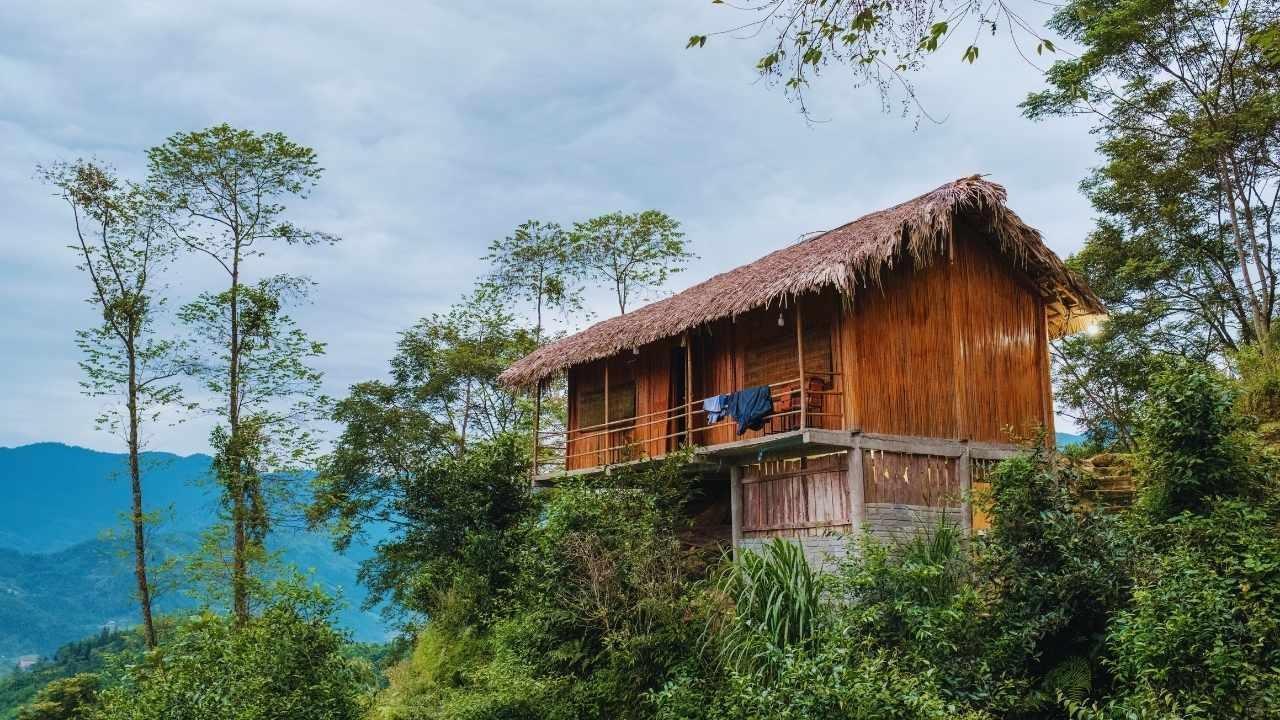You have not yet added any article to your bookmarks!

Join 10k+ people to get notified about new posts, news and tips.
Do not worry we don't spam!

Post by : Anis Farhan
Travel has evolved from mere luxury to a conscious endeavor. While travelers still seek comfort and luxury, they are increasingly aware of the environmental costs associated with their adventures. Sustainability has transitioned from a fringe concept to a central focus for mainstream travel, prompting hotels to demonstrate their commitment to eco-friendly practices.
Today's travelers prioritize awareness and responsible tourism as the urgency of climate issues grows. Sustainability is now a fundamental element of the travel industry rather than a marketing gimmick. This evolution has led to the emergence of new eco-certifications aimed at distinguishing genuine eco-friendly efforts from superficial claims.
As hotels implement rigorous environmental protocols—covering everything from resource management to energy efficiency—guests must ask: What do these eco-labels signify, and how will they affect your stay?
The tourism sector is a significant contributor to global waste and emissions. As guests seek transparency, hotels must adopt credible practices that showcase their environmental responsibility.
Eco-certifications provide:
Trust — Guests can depend on verified standards instead of marketing buzzwords.
Transparency — Hotels disclose their operational practices.
Accountability — Standards encourage real change rather than empty promises.
This transition goes beyond surface-level changes; it affects energy systems, waste management, and even guest actions while on the property. Both large chains and boutique establishments are now emphasizing their environmental benchmarks, practices for conserving water, waste management policies, and engagement with local communities.
Hotels are assessed based on their energy practices, including the use of renewable energy, energy-efficient appliances, and insulation quality. Some certifications necessitate on-site renewable energy production, like solar panels.
A substantial portion of sustainability evaluations focuses on water conservation measures such as reduced laundry cycles and efficient fixtures, alongside technologies for rainwater collection and greywater recycling.
Implementing policies to eliminate plastics, alongside systems dedicated to recycling, composting, and zero-waste strategies, form the core of these evaluations.
Certified hotels often use eco-friendly materials, energy-efficient windows, green roofs, insulated walls, and LED lighting.
Hotels situated near natural habitats must ensure minimal ecological disturbance, adhering to policies that protect local wildlife and manage light pollution effectively.
Sustainable hotels increasingly collaborate with local farmers and artisans, benefiting guests with fresher offerings while bolstering community livelihoods.
Hotels invite guests to participate in eco-practices by providing information and encouraging actions like towel reuse and plant-based menu options.
These assess a hotel’s eco-friendly practices regarding operations, energy use, and engagement with communities.
Ratings are awarded based on energy-efficient lighting, HVAC systems, and insulation quality.
Indicating active monitoring and reduction of emissions through verified initiatives.
Eco-lodges must show land stewardship and commitment to preserving biodiversity.
Resorts in regions prone to drought are assessed for innovative water conservation measures.
Different certificates can represent varying standards. While some are globally recognized, others may only be local. What should guests look for?
Certified hotels display their certifications prominently in common areas, on their websites, or in booking confirmations.
Guests should look for visible eco-friendly initiatives, like refillable water stations and energy-efficient lighting.
Genuine eco-friendly hotels will be willing to discuss their practices and future objectives, emphasizing sustainability as an ongoing journey.
If hotel staff are knowledgeable and supportive of eco-practices, it indicates authenticity in the hotel's sustainability culture.
Eco-friendly properties encourage responsible usage among guests in a non-intrusive manner.
Eco-certified hotels often feature superior air quality, purified water, and toxin-free furnishings, promoting a healthier space.
Many sustainable hotels prioritize fresh, organic, and locally-sourced meals, leading to tastier and more nutritious dining options.
Guests can expect advanced features like motion-sensor lighting, climate control, and energy-efficient appliances that marry sustainability with comfort.
Refillable dispensers
Bamboo or biodegradable products
Cloth laundry bags
Eco-friendly spa amenities
The concept of luxury is evolving; it aligns with responsibility.
Expect opportunities for nature walks, wildlife observation, and workshops that enrich the travel experience.
Modern green hospitality relies on advanced technology. Lazy hotels adopt:
Smart water leak detection systems
Solar panels and thermal heaters
Electric vehicle chargers for guests
Energy-efficient HVAC systems with sensor technology
Digital check-in services and paperless solutions
AI-driven kitchen inventory to minimize waste
Composting and waste management strategies
Sustainability is no longer a simple concern; it's an innovative approach.
Upscale hotels are spearheading green innovation with solar-heated pools, eco-friendly spa treatments, locally sourced organic products, and low-impact designs.
Guests enjoy luxurious accommodations without compromising eco-responsibility, heralding a new definition of luxury.
Visitors now anticipate:
Transparency
Authenticity
Locally sourced high-quality cuisine
Tranquil natural settings
Waste-reducing accommodations
Wellness-focused experiences
Respect for local traditions
Travelers desire more than just slogans—they want tangible impact and accountability in hospitality.
Not necessarily, though it’s common for guests to pay a bit more for eco-friendly practices. This increment supports:
Renewable energy investments
Local sourcing initiatives
Ethical labor standards
Environmental conservation
Use of fresh seasonal produce
Healthier outcomes for guests
Increasingly, this is seen as an investment rather than an added expense. Eco-conscious travel is evolving from a luxury to a lifestyle choice.
Utilize reusable containers and utensils
Support local cuisine and craftsmanship
Limit water and energy usage during your stay
Opt for guided nature and cultural tours
Choose properties with transparent sustainability practices
Respect natural habitats and local wildlife
Sustainability is a shared effort; hotels establish the framework, and guests bring their commitment.
Anticipate a hospitality environment where:
Carbon footprints are visible at booking
Hotels share sustainability performance metrics
Tourists lean towards local experiences
Green architecture is standard
Eco-resorts spearhead wellness tourism
Biomimetic designs influence hotel construction
Organic food becomes commonplace
Loyalty programs incorporate sustainability rewards
The path forward is evident: sustainable hospitality is becoming integrated into the core of modern travel.
Eco-certifications signify much more than mere identifiers; they represent a significant global transition where wellness, nature, ethics, and travel synergize. Today's guests are in search of both comfort and meaning. A hotel that prioritizes ecological balance elevates the travel experience.
Choosing sustainable accommodations does not imply sacrificing luxury; rather, it enhances it. The fusion of clean environments, nutritious food, thoughtfulness in design, and eco-minded hospitality results in experiences that enrich both guests and the environment.
The travel landscape is undergoing a transformation that feels both necessary and just. By opting for green accommodations, guests are not just booking rooms—they are endorsing a vision of a future where comfort and ethical responsibility coexist.
Sustainable travel selections are personal and can vary based on individual preferences and budgets. Certification standards differ, requiring guests to consider transparency and actual impact when choosing accommodations.










Study Warns Using AI for Medical Advice Is ‘Dangerous’ as Users Get Inaccurate Health Guidance
A major new study reveals that artificial intelligence (AI) chatbots and tools may give misleading o

Top Sci-Fi Movies Streaming on Netflix This February: Must-Watch Picks for Genre Fans
A curated news-style guide to the best science fiction films currently available on Netflix in Febru

BCCI Central Contracts Shake-Up: Kohli, Rohit Moved to Grade B as Board Reshapes 2025–26 List
Virat Kohli and Rohit Sharma have been placed in Grade B in the BCCI’s 2025–26 central contract list

Dalal Street Spotlight: Top 10 Stocks Investors Are Watching as Markets Open on a High
Indian stock markets begin the week with strong momentum, and several blue-chip and mid-cap stocks a

Market Movers Today: Key Stocks Set To Watch In Indian Markets
Indian equity markets are poised for active trading as several major companies, including Bharti Air

Milan Welcomes the World: Inside the Grand Opening Ceremony of the 2026 Winter Olympics
The 2026 Winter Olympics opening ceremony in Milan marked a defining moment for global sport, blendi